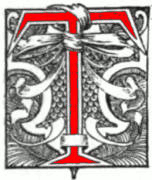
he best handbook to the Weald, to accompany . . . is still to this day Cobbett’s Rural Rides, that truest of all possible guides to unspoiled Surrey. When Cobbett wrote, the Wen, as he loved to call that huge, overgrown London, had not yet begun to invade with its cockney brick and mortar the peace ful vales in which the purest master of simple Saxon English was born and bred, and in which he produced the greatest of his strange and wayward treatises. The Weald was still as he himself describes it in his pellucid language: and the dale behind the green sand was as yet uninvaded by “the palpitating engines snorting steam across the acres,” which now bring the Wen and the Weald into close intercourse one with the other. Cobbett was a true son of the Surrey soil, born most characteristically at the Jolly Farmer Inn at Farnham, and buried close by at Ash, where he spent his last days in leisurely retirement. No Englishman educated in the ordinary school could ever attain that directness of language and simplicity of style which characterized the home-spun author's home-made literature. It is this that gives Cobbett his greatest charm. Every one of his sentences has a ring of truth and nature about its quaint wording impossible for men taught seduously to twist or conceal their English thoughts in moulds provided upon the Roman model. Cobbett writes as Englishmen would write if English literature had developed itself on its own account without submitting to the inoculation of classical influence. I don’t know whether everybody else has read as often as I have the famous description of the Vale of Chilworth, where some of these sketches were actually made: but lest there may be some who still know it not, I will venture once more to transcribe at length that masterpiece of simple and perverse philosophy.
“This pretty valley of Chilworth has a run of water which comes out of the high hills, and which, occasionally, spreads into a pond; so that there is in fact a series of ponds connected by this run of water. This valley, which seems to have been created by a bountiful Providence as one of the choicest retreats of man, which seems formed for a scene of innocence and happiness, has been, by ungrateful man, so perverted as to make it instrumental in effecting two of the most damnable of purposes in carrying into execution two of the most damnable inventions that ever sprang from the mind of man under the influence of the devil namely, the making of gunpowder and of bank-notes! Here, in this tranquil spot, where the nightingales are to be heard earlier and later in the year than in any other part of England; where the first bursting of the buds is seen in spring; where no rigour of seasons can ever be felt; where everything seems formed for precluding the very thought of wickedness; here has the devil fixed on as one of the seats of his grand manufactory; and perverse and ungrateful man not only lends him his aid, but lends it cheerfully. As to the gunpowder, indeed, we might get over that. In some cases that may be innocently, and, when it sends the lead at the hordes that support a tyrant, meritoriously employed. The elders and the willows, therefore, one can see, without so much regret, turned into powder by the waters of this valley. But, the bank-notes! To think that the springs which God has commanded to flow from the sides of these happy hills, for the comfort and the delight of man ——to think that these springs should be per verted into means of spreading misery over a whole nation!
I do not know whether the English language has ever been more charmingly or more transparently written. [171]
Bibliography
Allen, Grant. “Surrey Farmhouses.” Illustrated by W. Biscombe Gardner. span class ="book">The English Illustrated Magazine of Art. 6 (1888-1889): 155-71. Hathi Trust version of a copy in the Pennsylvania State University Library. Web. 6 March 2021
Last modified 7 March 2021